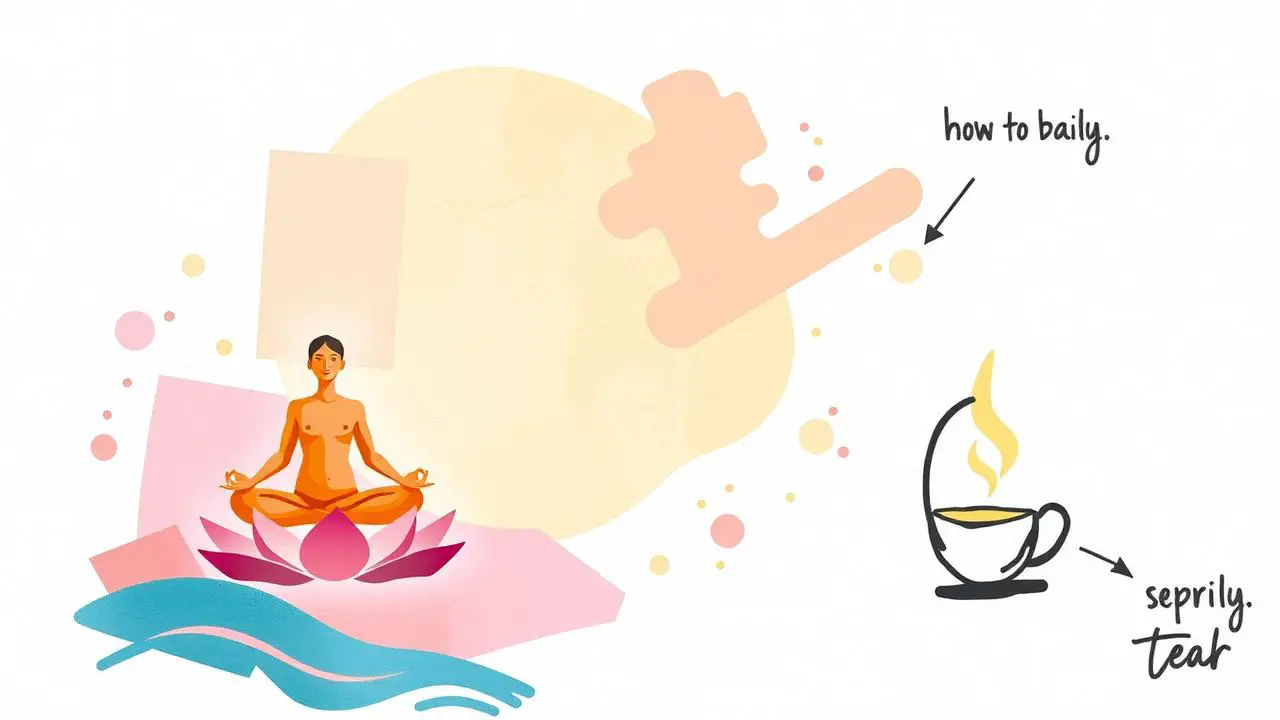Are you feeling overwhelmed at work? Do you struggle to concentrate on tasks and find yourself easily distracted? You’re not alone. Many people experience stress and anxiety in the workplace, which can impact productivity and overall well-being. That’s where meditation comes in.
Meditation is important in the workplace because it helps to reduce stress and anxiety, improve focus and concentration, increase productivity, and enhance overall well-being and mental health. Regular meditation practice can also promote better communication, teamwork, and problem-solving skills among colleagues.
Incorporating mindfulness practices into your workday can have a significant impact on your mental and emotional state, leading to increased focus and a more positive outlook on work. Research has shown that meditation can help reduce stress and anxiety, improve concentration, and even foster a more collaborative and positive workplace environment.
By taking just a few minutes each day to focus on your breath and clear your mind, you can reap these benefits and feel more empowered to tackle your work with confidence. In this article, we’ll explore the science behind meditation’s impact on the brain, techniques for incorporating meditation into your workday, and how group meditation can encourage team building and collaboration.
So take a deep breath, relax, and let’s dive in.
Understanding the Benefits of Workplace Meditation
Discovering the advantages of practicing mindfulness during working hours can significantly enhance productivity and overall well-being. By promoting productivity, meditation can help employees to focus on the task at hand, allowing them to work more efficiently and effectively.
Additionally, meditation can help to enhance employee well-being by reducing stress and anxiety, which are common issues in the workplace. Incorporating meditation into your workday can bring numerous benefits. It allows you to take a mental break, reducing stress levels and helping you to stay calm and focused.
Through regular meditation practice, you can improve your ability to concentrate, making it easier to prioritize tasks and complete them efficiently. By taking care of your mental well-being, you can become more productive and effective in your work.
Now let’s explore how meditation reduces stress and anxiety.
How Meditation Reduces Stress and Anxiety
You can reduce your stress and anxiety by taking a few moments each day to practice meditation techniques and mindfulness practices. By focusing on your breath and clearing your mind, you can approach your work with a greater sense of calm and clarity. This not only benefits your mental health but also improves your productivity and overall work performance.
Here are four ways that meditation can help reduce stress and anxiety in the workplace:
- Meditation allows you to tune out distractions and focus on the present moment, reducing feelings of overwhelm and anxiety.
- It helps you develop a more positive outlook by training your brain to focus on the good and let go of negative thoughts.
- By slowing down your breathing and heart rate, meditation triggers the relaxation response, reducing the physical symptoms of stress such as muscle tension and headaches.
- Regular meditation practice can improve your overall emotional resilience, making it easier to handle stressors as they arise.
Incorporating meditation into your workday doesn’t have to be complicated. There are simple techniques you can use to take a few moments to breathe and clear your mind, allowing you to approach your work with a renewed sense of focus and calm.
Techniques for Incorporating Meditation into Your Workday
So, you’re telling me that taking a few minutes to sit quietly and do absolutely nothing can actually improve your productivity and make you a better employee? Well, who would’ve thought that being lazy could be so beneficial!
But it’s true, incorporating meditation into your workday can have a profound impact on your overall well-being and work performance.
One way to begin is by trying breathing exercises. Simply taking a few deep breaths in and out can help calm your mind and reduce stress levels.
Another technique is to practice mindfulness, which involves focusing your attention on the present moment and observing your thoughts without judgment. You can do this by taking a few minutes to sit quietly and notice the sensations in your body, the sounds around you, and the thoughts that come and go.
By incorporating these techniques into your daily routine, you can increase your focus, reduce stress, and improve your overall work performance. So, why not give it a try and see the benefits for yourself?
Now, let’s dive deeper into the science behind meditation’s impact on the brain.
The Science Behind Meditation’s Impact on the Brain
Incorporating mindfulness techniques into your daily routine can have a profound impact on your overall well-being and work performance. This is evidenced by the science behind meditation’s impact on the brain.
Research shows that regular meditation can lead to neuroplasticity effects. This means that the brain is able to form new neural connections and change its structure based on experiences. This is significant because it suggests that meditation can improve cognitive performance by enhancing memory, attention, and decision-making skills.
Additionally, studies have found that meditation can increase gray matter in the brain, particularly in areas associated with emotional regulation and self-awareness. This can lead to improved stress management and emotional intelligence, which are essential skills for navigating the complexities of the workplace.
By incorporating meditation into your daily routine, you can reap these cognitive and emotional benefits and become a more effective and fulfilled employee.
Improving focus and concentration through meditation can be a powerful tool for enhancing productivity and achieving professional success. By training your mind to stay present and focused on the task at hand, you can eliminate distractions and work more efficiently.
In the next section, we’ll discuss specific techniques for incorporating meditation into your workday that can help you improve your focus and concentration and achieve your goals.
Improving Focus and Concentration through Meditation
Improving focus and concentration through meditation techniques and mindfulness practices can bring a significant change in your productivity. According to a study, practicing mindfulness-based stress reduction techniques led to a 35% increase in productivity. This means that investing some time in meditation can help you achieve your goals more efficiently, leaving you with more time for other things that matter.
Meditation techniques can help you train your mind to stay focused on the present moment, without getting distracted by the noise around you. By doing so, you can enhance your ability to concentrate on the task at hand. Moreover, mindfulness practices can help you improve your memory and cognitive flexibility, which is crucial for problem-solving. By mastering these skills, you can become a more efficient and effective worker.
So, take some time out of your busy schedule and practice mindfulness techniques to unlock your full potential. Now, let’s talk about how meditation can help you cultivate a positive workplace environment.
Cultivating a Positive Workplace Environment through Meditation
Let’s explore how incorporating mindfulness practices can create a more uplifting and harmonious atmosphere at work.
Mindful communication is a key component in fostering emotional intelligence, which can lead to better relationships between colleagues. When we practice mindfulness, we become more aware of our thoughts and emotions, and this awareness can help us regulate our reactions in difficult situations. By communicating mindfully, we’re more likely to respond in a calm and rational way, rather than reacting impulsively out of frustration or anger. This can prevent conflicts from escalating and create a more positive and productive work environment.
In addition to promoting mindful communication, practicing meditation can also help cultivate a positive workplace environment by encouraging team building and collaboration. When we meditate as a group, we’re able to connect with each other on a deeper level and build a sense of community. This can lead to improved teamwork and collaboration, as employees feel more connected and invested in their work and their colleagues.
By taking a few minutes each day to meditate together, you can create a culture of mindfulness and collaboration that’ll benefit the entire workplace.
Encouraging Team Building and Collaboration through Group Meditation
By coming together for group meditation sessions, colleagues are able to form deeper connections and build a sense of community, ultimately leading to enhanced collaboration and teamwork in the office.
Guiding employees through a group meditation session can create a space for individuals to let go of any stress or negative emotions, allowing them to be more present and engaged with their colleagues. It can also encourage a feeling of connectedness to the company and a shared purpose, which can motivate employees to work together more effectively.
Creating a meditation space in the workplace can be a powerful tool for team building. Not only does it provide a designated area for meditation, but it also signals to employees that the company prioritizes their well-being and encourages them to take time for self-care.
By incorporating group meditation into the workplace culture, employees can feel supported and connected to their colleagues, which can lead to increased productivity and job satisfaction.
Transitioning to the next section, it’s important to measure the success of workplace meditation programs to ensure their effectiveness.
Measuring the Success of Workplace Meditation Programs
Congratulations on taking steps to encourage team building and collaboration through group meditation! Now that you have implemented a workplace meditation program, it’s important to measure its success. Employee engagement and productivity metrics are key indicators that can help you determine whether the program is working or not.
To measure employee engagement, consider conducting surveys or focus groups to gather feedback from your employees. Ask them about their experience with the meditation program and whether they feel it has positively impacted their work and overall well-being. By analyzing this feedback, you can identify areas for improvement and make necessary adjustments to the program to better meet the needs of your employees.
In addition to employee engagement, productivity metrics can also help you determine the success of your workplace meditation program. Keep track of metrics such as attendance, absenteeism, and task completion rates before and after implementing the program. If you notice an improvement in these metrics, it’s a good sign that the program is positively impacting productivity. By consistently monitoring these metrics, you can track the progress of the program and make data-driven decisions to further improve it. Remember, a successful meditation program not only benefits your employees but also benefits your business as a whole.
How Can Meditation in the Workplace Also Benefit Student Focus and Well-being?
Implementing meditation in the workplace has proven to be beneficial for boosting student focus and wellbeing. By incorporating mindfulness practices, students can benefit from improved focus, reduced stress, and overall improved well-being. This can lead to better academic performance and a more positive school experience for students.
Conclusion
Congratulations on completing this article on why meditation is important in the workplace! Hopefully, you’ve gained a better understanding of the numerous benefits that meditation can bring to your work life.
Whether you’re trying to reduce stress and anxiety, improve focus and concentration, or cultivate a positive workplace environment, meditation can help.
In fact, according to a recent study from the American Psychological Association, meditation has been shown to reduce employee turnover, absenteeism, and healthcare costs.
So, if you’re looking for a way to boost your productivity and overall well-being at work, consider incorporating meditation into your daily routine. With numerous techniques and resources available, there’s never been a better time to start your meditation practice.
Remember, a few moments of mindfulness each day can go a long way towards creating a happier, healthier, and more productive workplace environment for everyone.




